Praise for The Undoing of Death
"Fleming Rutledge is a powerful and provocative preacher. Proudly evangelical in her proclamation of the gospel, she provides a penetrating analysis of the human condition and a clear affirmation of God's gracious response. Along the way, she invites poets, sages, and rogues to enter the conversation, joining their voices with those of our spiritual ancestors.... This collection of sermons, drawn from twenty-five years of preaching, is a valuable resource for all who are concerned about the formation of Christian identity in an increasingly pluralistic and heterodox world."
- MARTHA J. HORNE
dean and president of Virginia Theological Seminary
"Good Friday and Easter Day attendance has risen to over 3,000 in our parish as Fleming Rutledge has returned over the years to confront our congregation with the news of Christ crucified and raised. The power of God in Fleming Rutledge's words works to raise us from the tomb of our modern anxieties and predispositions to that promised abundant and everlasting life. These sermons are not sentimental escapist fare that ignores or sidesteps the theological reality of our situation. These are, rather, sinconfronting, repentance-inducing, hope-infusing antidotes to our desperate prognosis. This book will restore passion and urgency in the preacher and offer an insightful application of salvation to daily living for all."
- DONALD ARMSTRONG
rector of Grace Episcopal Church, Colorado Springs
"Fleming Rutledge has an amazing knack for finding your most cherished doubts about the Christian faith. She then lets the gospel encounter these doubts by unveiling your most cherished hopes. By that point in her sermons you realize that you are listening to the risen Lord and not just the preacher."
- M. CRAIG BARNES
senior pastor of National Presbyterian Church, Washington, D.C.
"Excellent, honest, and compelling sermons are a rare and splendid treasure for the church. Here is a book full of them. Fleming Rutledge's sermons and meditations on Holy Week and Easter go to the very heart of the Christian faith. They portray the drama of the gospel - both the darkness of the cross and the burst of Easter light. They then call believers to a life that takes up that cross and rejoices in that light."
- LEANNE VAN DYK
professor of Reformed theology, Western Theological Seminary
"These are passionate sermons. They speak arrestingly and thoughtfully of the passion of Jesus and of the passionate love of God. They tell us how and why the power of that crucified love intervenes in contemporary lives and how, in Fleming Rutledge's phrasing, `the cross is backlit by the dawn of God's new day.'"
- FREDERICK H. BORSCH
Bishop of the Episcopal Diocese of Los Angeles
"Fleming Rutledge's sermons are thoughtful, compelling, biblical, and personal - a welcome combination for the church today. The power of the Word preached with intelligent warmth is all too rare in the pulpit, but it is so very evident in The Undoing of Death."
- CAROL ANDERSON
rector of All Saints' Episcopal Parish, Beverly Hills
The Undoing of Death
SERMONS FOR HOLY WEEK AND EASTER
Fleming Rutledge




To my beloved daughters Heyward Rutledge Donigan and Elizabeth Heath Rutledge with thanksgiving for all that they mean to us and commending them always to the eternal care of the crucified and risen Christ
Contents
xi
xv
PART ONE
The First Day of Holy Week: The Sunday of the Passion, Commonly Called Palm Sunday
PART TWO
Monday, Tuesday, and Wednesday of Holy Week
PART THREE
Thursday of Holy Week: Commonly Called Maundy Thursday or Holy Thursday
PART FOUR
Good Friday
Seven Meditations
Six Meditations
Three Meditations: The Three Signs on Calvary
More Sermons for Good Friday
PART FIVE
The Day of Resurrection: Easter Day
PART SIX
Easter Week
PART SEVEN
Eastertide, Also Called the Great Fifty Days
Illustrations
Author's Foreword
 oly Week and Easter preaching is by any standard the most challenging of the Christian year. The intensity of the season, the uniqueness of the content, and the high expectations of congregations place special demands on those who deliver the messages. It has been my privilege and solemn responsibility to preach on Good Friday in various congregations across the United States for twenty-six consecutive years (1976-2001). This volume is culled from those experiences and from the accompanying Holy Week and Easter sermons that were delivered, in many cases, in those same congregations.
oly Week and Easter preaching is by any standard the most challenging of the Christian year. The intensity of the season, the uniqueness of the content, and the high expectations of congregations place special demands on those who deliver the messages. It has been my privilege and solemn responsibility to preach on Good Friday in various congregations across the United States for twenty-six consecutive years (1976-2001). This volume is culled from those experiences and from the accompanying Holy Week and Easter sermons that were delivered, in many cases, in those same congregations.
The meaning of the Crucifixion demands careful and thorough exposition of a sort that is not possible in a Sunday sermon. That is why the traditional three-hour Good Friday service, where it is offered, remains an invaluable opportunity. Good Friday preaching, however, seems to be going out of fashion. Three-hour preaching services have become harder to find. Liturgies for the day have become more elaborate and, in many cases, have replaced sermons altogether. The books of Kenneth Leech have been of exceptional value to me since I discovered them about five years ago, and I urgently recommend We Preach Christ Crucified in particular, but I cannot agree with his opinion that there need not be any preaching on Good Friday because the liturgy is enough.1 The reason that the liturgy is not sufficient by itself is that the Cross is not self-interpreting. As St. Paul clearly expected his congregations to understand, God has given us the apostolic gift and task of proclaiming "the word of the Cross."
A great deal of controversy, polemic, and even hostility surrounds the preaching of the Cross in the mainline churches today. There is a certain amount of "political correctness" associated with Holy Week preaching; various litmus tests are applied. I beg the reader who is predisposed to one or another view of the Cross and Resurrection to withhold judgment until he or she has read more than one of these collected sermons. Those who are looking for the "substitutionary atonement" will indeed find it here, but not in the strict scholastic form which has come to be called "penal substitution." The prominent Christus Victor theme plays a large role in these sermons, especially the Easter ones. The exemplary or "subjective" motif will be found also, though to a lesser degree. It is my intention and my hope to provide a rich variety of interpretations, because that is what the New Testament and the tradition offer us. The emphasis is on metaphors and images, rather than rationalistic "theories." Atonement for sin, Christ's sacrificial self-offering, and the price God paid for our redemption are stressed, but so are the motifs of deliverance from oppression, victory over death, triumph over evil, and Jesus' solidarity with the outcast and wretched of the earth. Anyone who reads this collection as though it were a narrow brief for one interpretation over against another will be misunderstanding my intention.


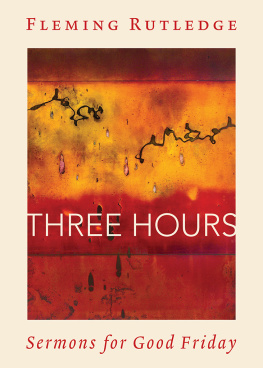

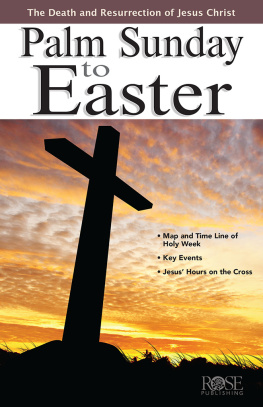
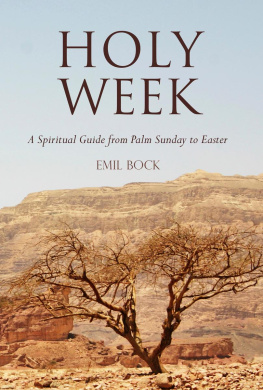
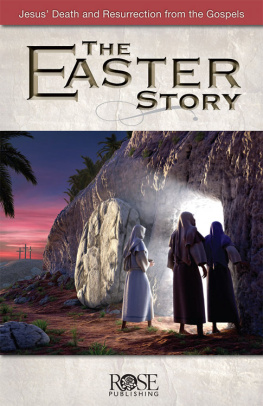
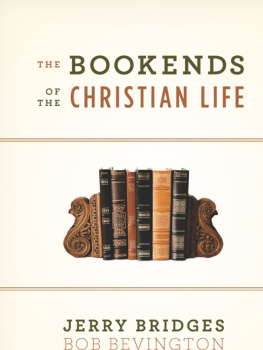
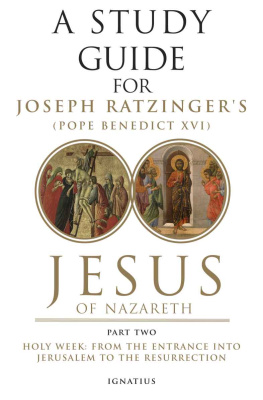
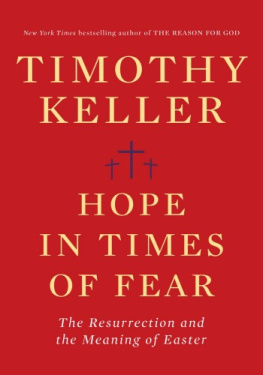
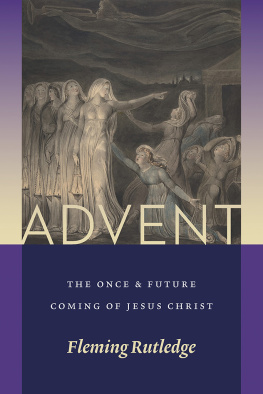
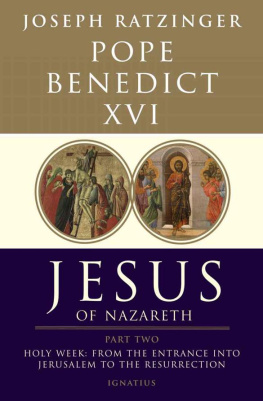









 oly Week and Easter preaching is by any standard the most challenging of the Christian year. The intensity of the season, the uniqueness of the content, and the high expectations of congregations place special demands on those who deliver the messages. It has been my privilege and solemn responsibility to preach on Good Friday in various congregations across the United States for twenty-six consecutive years (1976-2001). This volume is culled from those experiences and from the accompanying Holy Week and Easter sermons that were delivered, in many cases, in those same congregations.
oly Week and Easter preaching is by any standard the most challenging of the Christian year. The intensity of the season, the uniqueness of the content, and the high expectations of congregations place special demands on those who deliver the messages. It has been my privilege and solemn responsibility to preach on Good Friday in various congregations across the United States for twenty-six consecutive years (1976-2001). This volume is culled from those experiences and from the accompanying Holy Week and Easter sermons that were delivered, in many cases, in those same congregations.